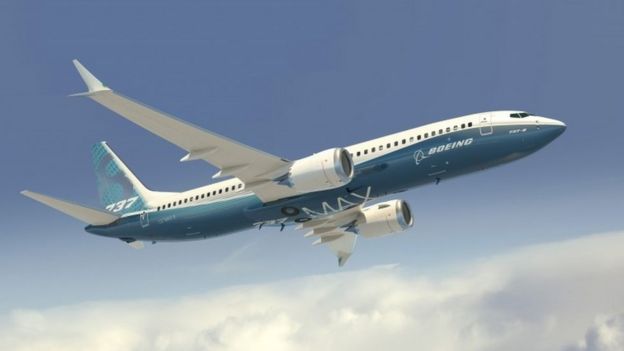The Implications of the Large-Plane Duopoly
In class, we learned about the many different types of markets ranging from free competition to monopolies to other markets in between. One type of market that was mentioned but never really talked about was a duopoly - a monopoly shared between two groups/companies. Although they are less common, they do exist such as MasterCard and Visa, PepsiCo and Coca-Cola, etc. However, one market that tends to get overlooked is that of large planes.
This market is dominated by two companies - the North American Boeing and the European Airbus - who control approximately 99%. One major reason that this fact is not as well known is because it simply does not affect us and is hidden in the background. For example, when booking a flight the model of the plane is usually not a major thought that comes to mind; other factors such as ticket costs, seat availability, etc. usually take precedence.
Yet, the two crashes of the Boeing 737 Max airplanes are starting to highlight the importance of understanding this market. The idea of free competition is that if one supplier is not up to form, whether its products malfunction or simply become outdated, then consumers can expect other suppliers to step up and take its place. But this is not the case in a duopoly, which is why when these two crashes occurred many economists worried that it would cost the industry billions of dollars.
Although many consumers may assume that these costs are mostly on the back end and to be dealt with by Boeing, this may not be the case. Airline companies, who are the number one buyer from large plane companies, purchase airplanes with a clear outline on how many they need and how they are going to be utilized to achieve maximum utility from such large expenditures. However, many airlines such as Southwest are forced to ground these planes, this may create a shortage, leading to increased ticket prices and overall more hassle for consumers to deal with when trying to purchase airline tickets.
What are your thoughts on the Boeing-Airmax duopoly or duopoly stability overall? Do you think consumers should worry about duopolies as much as monopolies?
Boeing 737 Max Airplane
https://www.forbes.com/sites/kenroberts/2019/03/18/downside-of-boeing-airbus-duopoly-apparent-when-one-stumbles/#47daadf21017
https://www.theatlantic.com/business/archive/2019/03/737-max-8-grounding-boeing-value/584947/
This market is dominated by two companies - the North American Boeing and the European Airbus - who control approximately 99%. One major reason that this fact is not as well known is because it simply does not affect us and is hidden in the background. For example, when booking a flight the model of the plane is usually not a major thought that comes to mind; other factors such as ticket costs, seat availability, etc. usually take precedence.
Yet, the two crashes of the Boeing 737 Max airplanes are starting to highlight the importance of understanding this market. The idea of free competition is that if one supplier is not up to form, whether its products malfunction or simply become outdated, then consumers can expect other suppliers to step up and take its place. But this is not the case in a duopoly, which is why when these two crashes occurred many economists worried that it would cost the industry billions of dollars.
Although many consumers may assume that these costs are mostly on the back end and to be dealt with by Boeing, this may not be the case. Airline companies, who are the number one buyer from large plane companies, purchase airplanes with a clear outline on how many they need and how they are going to be utilized to achieve maximum utility from such large expenditures. However, many airlines such as Southwest are forced to ground these planes, this may create a shortage, leading to increased ticket prices and overall more hassle for consumers to deal with when trying to purchase airline tickets.
What are your thoughts on the Boeing-Airmax duopoly or duopoly stability overall? Do you think consumers should worry about duopolies as much as monopolies?
Boeing 737 Max Airplane
https://www.forbes.com/sites/kenroberts/2019/03/18/downside-of-boeing-airbus-duopoly-apparent-when-one-stumbles/#47daadf21017
https://www.theatlantic.com/business/archive/2019/03/737-max-8-grounding-boeing-value/584947/


I really enjoyed reading this post and it brought up a really important problem in the airline industry. Looking at the case of the crashes of the Boeing 737, what I found out is that many airlines are benefitting from the crashes. Many airlines had over ordered the Boeing 737, either because they were opening new routes or faulty strategy. The ban on the Boeing 737 has allowed many of these companies to re-evaluate purchasing the aircraft without cancellation fees by citing the crashes as their reasoning. Furthermore, these airlines are seeking compensation for the fact that their flights are grounded because they purchased these aircrafts. Overall, while the situation may seem bad for the industry as a whole, there's still a silver lining.
ReplyDeleteSource : https://www.reuters.com/article/us-ethiopia-airplane-airlines/airlines-with-buyers-remorse-may-use-boeing-737-max-ban-to-revise-orders-idUSKCN1QW2P8